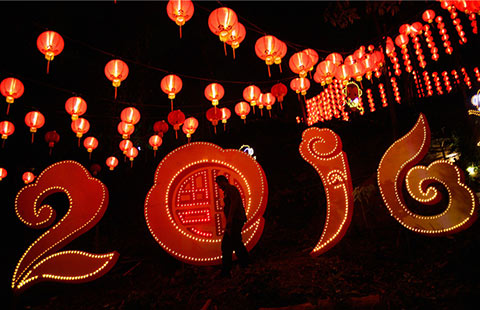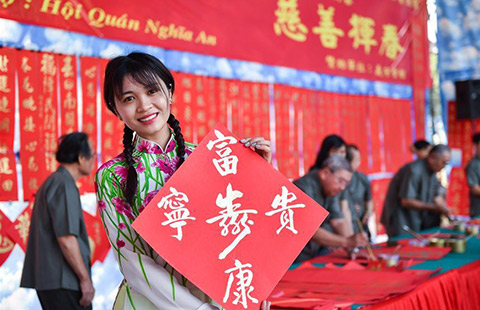

There were no musical instruments or singing in the meeting room on the first afternoon of East-West Center and East-West Center Alumni International Conference on Saturday in Beijing, but scholars from the United States and China joined in harmony through a panel discussion on music.
Frederick Lau, director of the Center for Chinese Studies at University of Hawaii at Manoa, spoke of his study of Chinese music in a Hawaiian context during a lecture titled Singing as Collective Memory: Chinese Choir in the Diaspora, his insights gleaned through his six years with the Han Sheng Chinese Choir - literally, "voice of Han people" - in Honolulu.
"The choir members join not only for fun or as an artistic pursuit," Lau said. "They build an identity for themselves."
Lau said few of the choir members are second- or third-generation Chinese.
"New generations of Chinese want to get rid of the old image of Chinese Hawaiians as laborers and plantation workers, so many prefer to get involved in higher education and behave like other Americans."
"However, the choir is an activity in which it is easier for them to embrace their Chinese identity. They will naturally express their emotions, which are hidden at other times."
Lau said Hawaii is a perfect place for such study because local Chinese are more diverse than the ethnic Chinese in most other overseas areas.
"We have members from the mainland, Taiwan and Hong Kong. They speak different dialects and may have different backgrounds. It is interesting to see that they don't have the same understanding of what China means, but they show that they identify with the same country through singing."
Thanks to its multicultural background, Hawaii became a hub for ethnomusicology, the study of social and cultural aspects of music and dance in local and global contexts, shortly after the subject came into being around the 1950s.
Lau said the studies on Chinese music have been popular in US colleges since the 1960s, and have greatly expanded over time. Chinese folk music of the Song Dynasty (960-1279) and operas of the Yuan Dynasty (1271-1368) are among the first topics that aroused the academia's interest, and US scholars have paid more attention to Chinese modern folklore in recent years.
One of Lau's recent studies looked at the connection between the flute and politics in China.
However, the Hong Kong-born professor lamented that while American colleges continue studying Chinese music more at greater depth, their Chinese counterparts have not done the same with American music.
wangkaihao@chinadaily.com.cn
 Railway attendant spends her fifth Spring Festival on train
Railway attendant spends her fifth Spring Festival on train
 Top 11 provinces with ambitious growth targets
Top 11 provinces with ambitious growth targets
 Alternative yardsticks show upbeat signs in Chinese market
Alternative yardsticks show upbeat signs in Chinese market
 Suning hires expats as couriers on Chinese New Year holiday
Suning hires expats as couriers on Chinese New Year holiday
 Top 10 most valuable startups in the world
Top 10 most valuable startups in the world
 A job to help people release pressure by chatting
A job to help people release pressure by chatting
 Millions spread their wings on overseas travel taking off
Millions spread their wings on overseas travel taking off
 Top 10 industries with the highest salary
Top 10 industries with the highest salary

